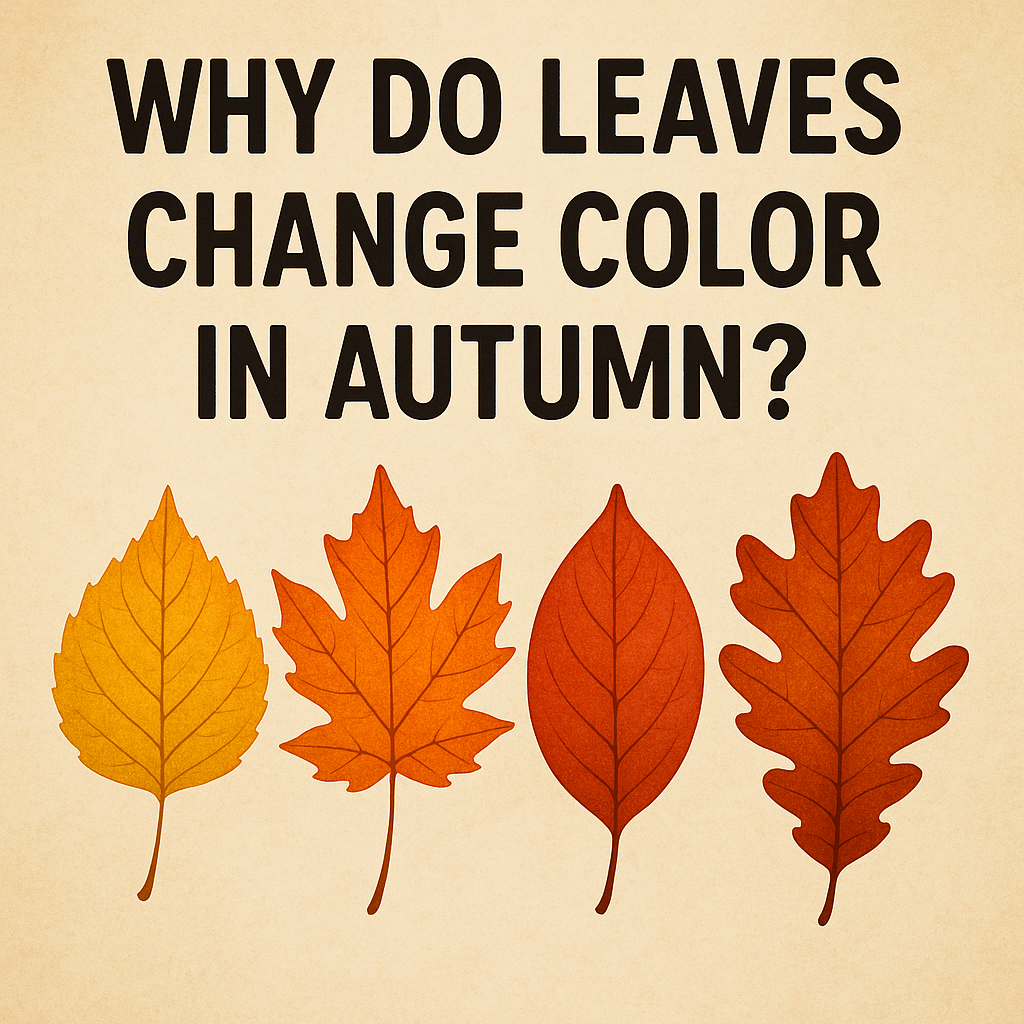
When autumn comes, nature reveals a poetic shift. Trees that stood green all summer now burst into hues of amber, crimson, and gold. This beautiful change always makes me ask: why do leaves change color in autumn?
In this blog, we’ll explore the Top 5 fascinating Reasons Why Leaves Change Color in Autumn, combining nature’s beauty with the science behind it.
why do leaves change color in autumn
To answer why do leaves change color in autumn, we begin with chlorophyll—the pigment that gives leaves their green color. In fall, shorter daylight and cooler weather stop trees from making chlorophyll. As it breaks down, other pigments become visible, revealing the stunning fall colors.
Top 5 Reasons Why do Leaves Change Color in Autumn
As summer fades and autumn arrives, you may wonder why the vibrant greens of leaves turn into fiery reds, warm oranges, and golden yellows. This natural shift isn’t just beautiful—it’s backed by fascinating science. Below are the top 5 reasons why leaves change color in autumn:
1. Decrease in Daylight
One main reason why leaves change color in autumn is the reduction in sunlight. As days grow shorter, trees stop making chlorophyll, causing the green color to fade and other pigments to take the spotlight.
2. Cooler Temperatures
Cooler nights, especially with sunny days, explain why do leaves change color in autumn so vividly. These conditions help break down chlorophyll faster and boost the red and purple pigments in some trees.
3. Carotenoids Reveal Yellow & Orange
Another reason why leaves change color in autumn is carotenoids—pigments responsible for yellow and orange hues. These pigments are always present but masked by chlorophyll until autumn reveals them.
4. Anthocyanins Create Reds & Purples
Some trees produce anthocyanins during fall. These red and purple pigments form in response to sunlight and cool temperatures, showing us another scientific reason why do leaves change color in autumn.
5. Trees Prepare for Winter Survival
The last reason why do leaves change color in autumn is practical: survival. By shedding leaves, trees conserve water and energy to survive winter. The color change is part of this natural transition.
According to the USDA Forest Service, fall colors result from a mix of pigment changes triggered by season shifts.
Quick review – Why Do Leaves Change Color in Autumn?
Factor Effect
1. Less Daylight -Stops chlorophyll production
2. Cool Temperatures- Boost red/purple pigments
3. Carotenoids Present- Reveal yellow/orange
4. Anthocyanins Formed- Create reds and purples
5. Tree Strategy- Prepares for winter
This review chart shows the key factors behind why do leaves change color in autumn.
Why Only Some Trees Change Color
Another common question is why do leaves change color in autumn only in certain trees. Deciduous trees, like maple or birch, shed their leaves in fall and show color changes. Evergreens keep their needles and remain green all year.
FAQ – Why Do Leaves Change Color in Autumn?
Q1. Why do leaves change color in autumn more in some regions?
Cooler climates with dry, sunny falls show more vibrant colors.
Q2. Why do some trees turn red while others turn yellow?
It depends on the balance of pigments like anthocyanins (reds) and carotenoids (yellows).
Q3. Can one tree have multiple leaf colors?
Yes! Sunlight exposure and weather create stunning variations in one tree.
Q4. Why do some leaves go brown without color change?
Environmental stress can skip pigment changes and dry leaves quickly.
Final Thoughts
So, why do leaves change color in autumn? It’s not just seasonal flair—it’s a natural process tied to survival. Chlorophyll fades, other pigments shine, and trees prepare for colder days. This yearly transformation reminds us that change can be beautiful and necessary.
Just like the mystery behind why do leaves change color in autumn, the human mind also holds secrets — such as
Why do we forget dream?Both are fascinating glimpses into natural and mental transitions.

